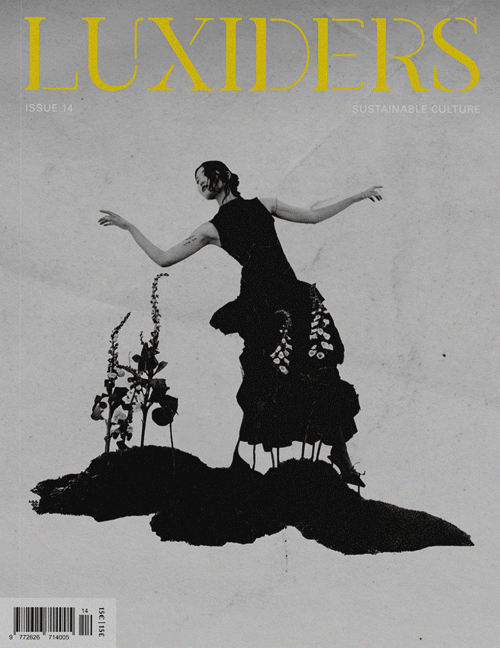
“Craftsmanship can be an incredible tool to reduce global poverty” | Interview with Simone Cipriani
The Ethical Fashion Initiative is a United Nations program that enables artisans in marginalized conditions to be a permanent part of the supply chain of some international brands and retailers. Speaking with The Ethical Fashion Initiative’s founder, Simone Cipriani, gives insight into the work of this UN program and the good it does worldwide.
Simone Cipriani founded The Ethical Fashion Initiative years ago after having worked in Africa for a UN agency directing a large project on industrial development. He had worked in the fashion industry before and knew the value of artisans. He knew there was an emerging segment of the market for responsible and ethical fashion, so with the agency he was working for, he decided to launch his idea.
THE ETHICAL FASHION INITIATIVE
The Ethical Fashion Initiative manages a large and complex supply chain of artisans, almost 95% of whom are women. Most of these women live in very marginalized conditions, mostly in countries with conflict or insurgency such as Mali, Burkina Faso, and Afghanistan. The Ethical Fashion Initiative is also an incubator for emerging African brands and collaborations among creative people in Africa and Afghanistan. They enable artisans to be a part of an international supply chain.
The Ethical Fashion Initiative organizes business in every country where they work. They have a central social enterprise that belongs to local artisans, and they co-manage the social enterprise so that it’s the trade interface of the brands, retailers, and customers. Together with the brands and the social enterprise, The Ethical Fashion Initiative does all of the product development, and the social enterprise works as a collective of artisans. The artisans are usually individual entrepreneurs looking for assistance, training, or mentorship. They’re artisans who want to create cooperatives, companies, and become suppliers of the social enterprise.
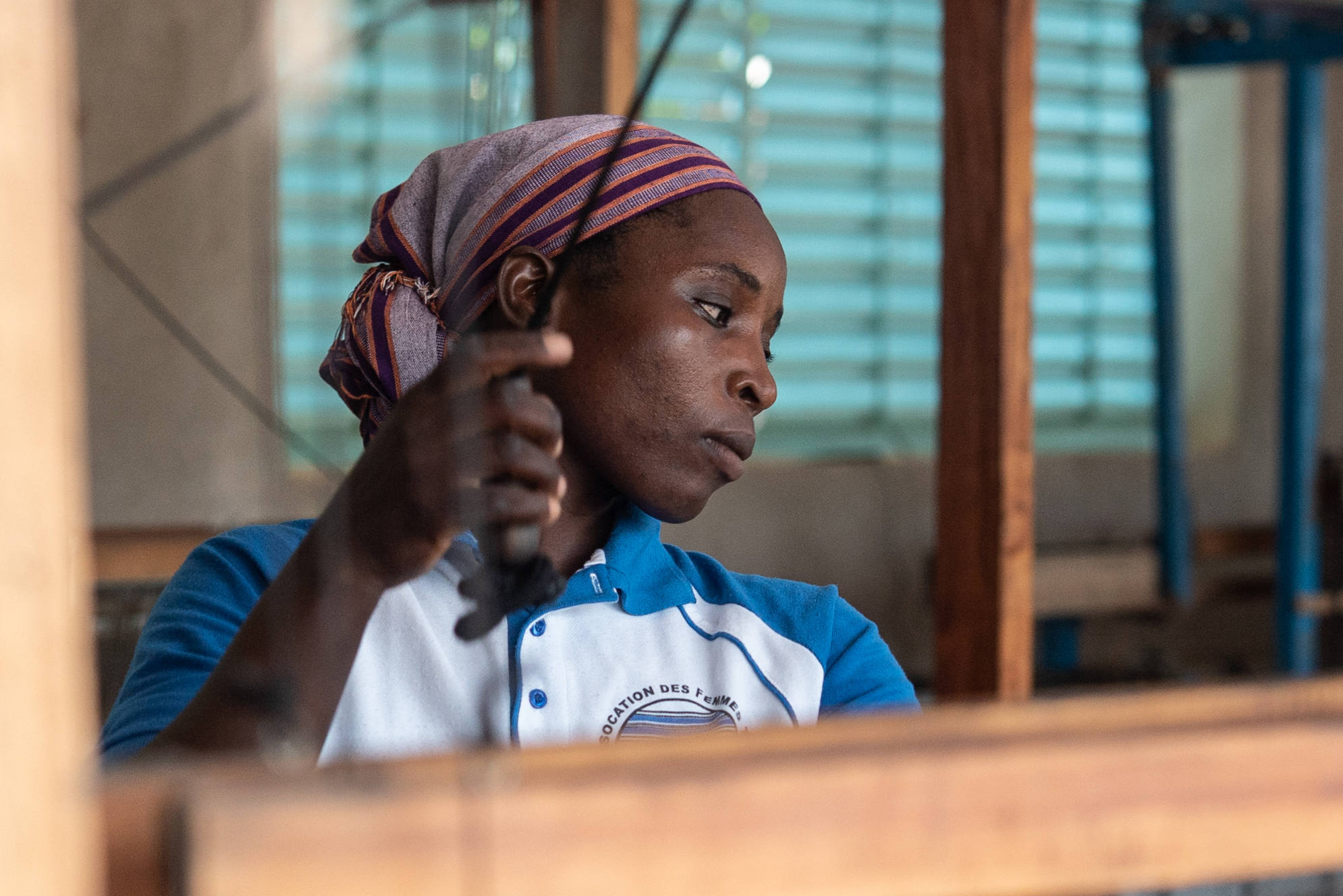
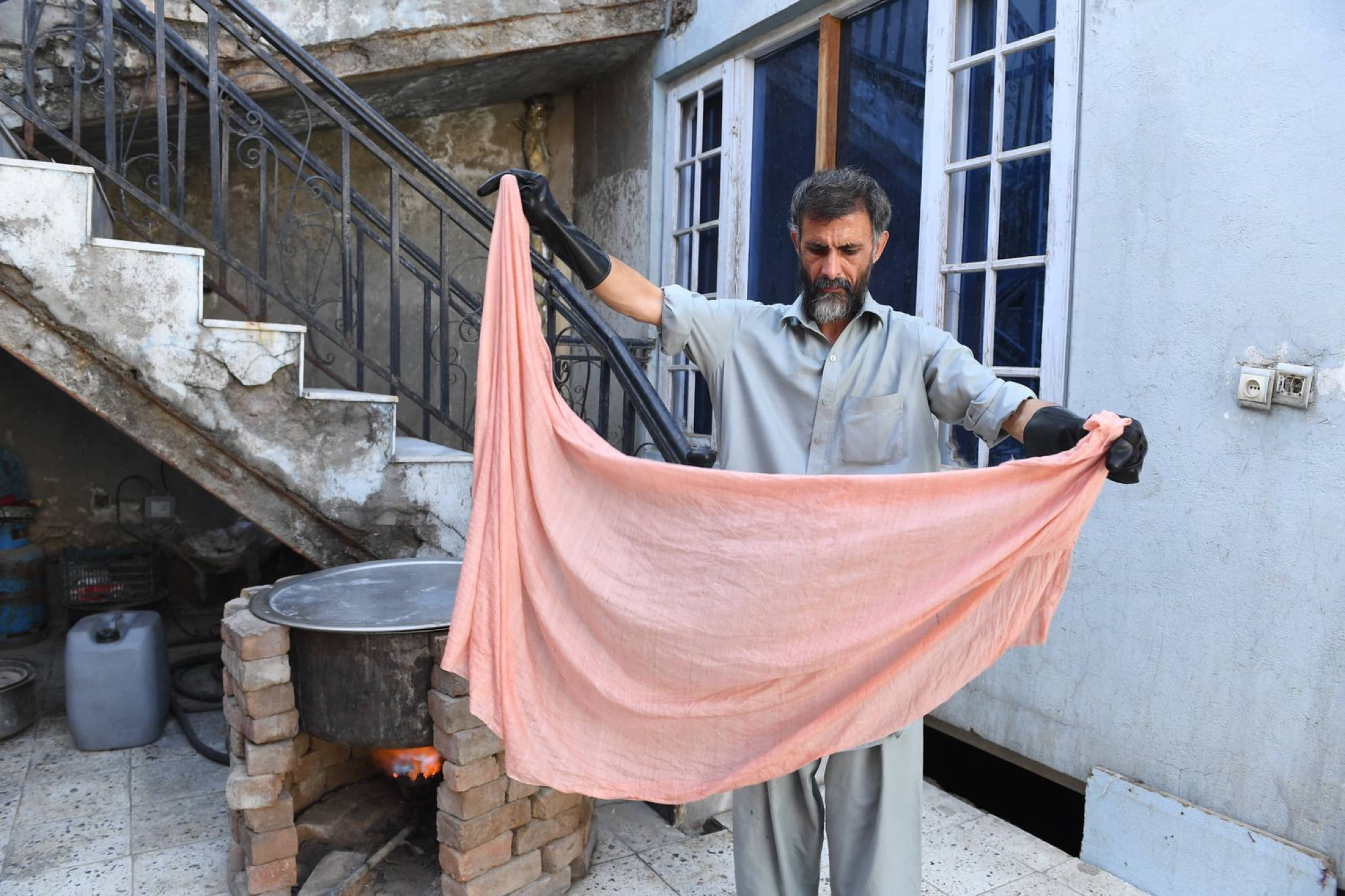
Through the social enterprise, artisans become suppliers of brands, and in this way The Ethical Fashion Initiative coordinates the work of the artisans, enabling them to have their own company, profitability, and negotiate terms and conditions with brands. The social enterprise then grows, accumulates profits, and is able to offer credit, investment, and other incentives to the cooperative’s artisans.
The social enterprise organizes training for artisans so they’re able to do the first quality control on products. The second layer of quality control is done by the social enterprise, and is where fair labor standards are applied. This is how The Ethical Fashion Initiative is able to meet all the criteria of the International Labour Organization like fair labor, living wages, non-discrimination, health and safety in the work place, no underage labor, etc. Working in this way with artisans is a powerful tool for reducing global poverty.
“Craftsmanship can be an incredible tool to reduce global poverty, an incredible tool because craftsmanship is about people working and then employing people around them in the community. Craftsmanship is about creating social capital because people learn to work together. You know in some cases where we work there is a social conflict also between different ethnic groups. Inside artisanal workshops I have almost never seen this type of conflict because artisans, they work together…they share the production cycle of the common product, whose proceedings, whose profits go to them and their family.”
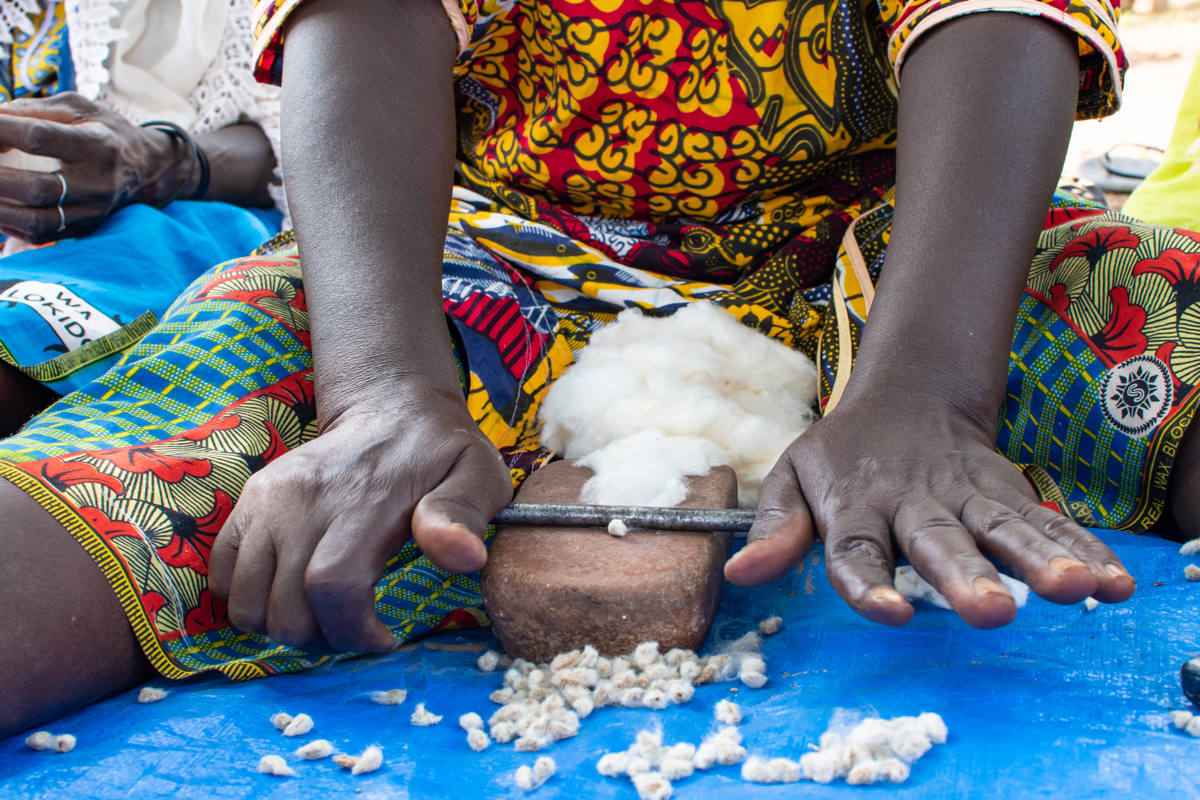
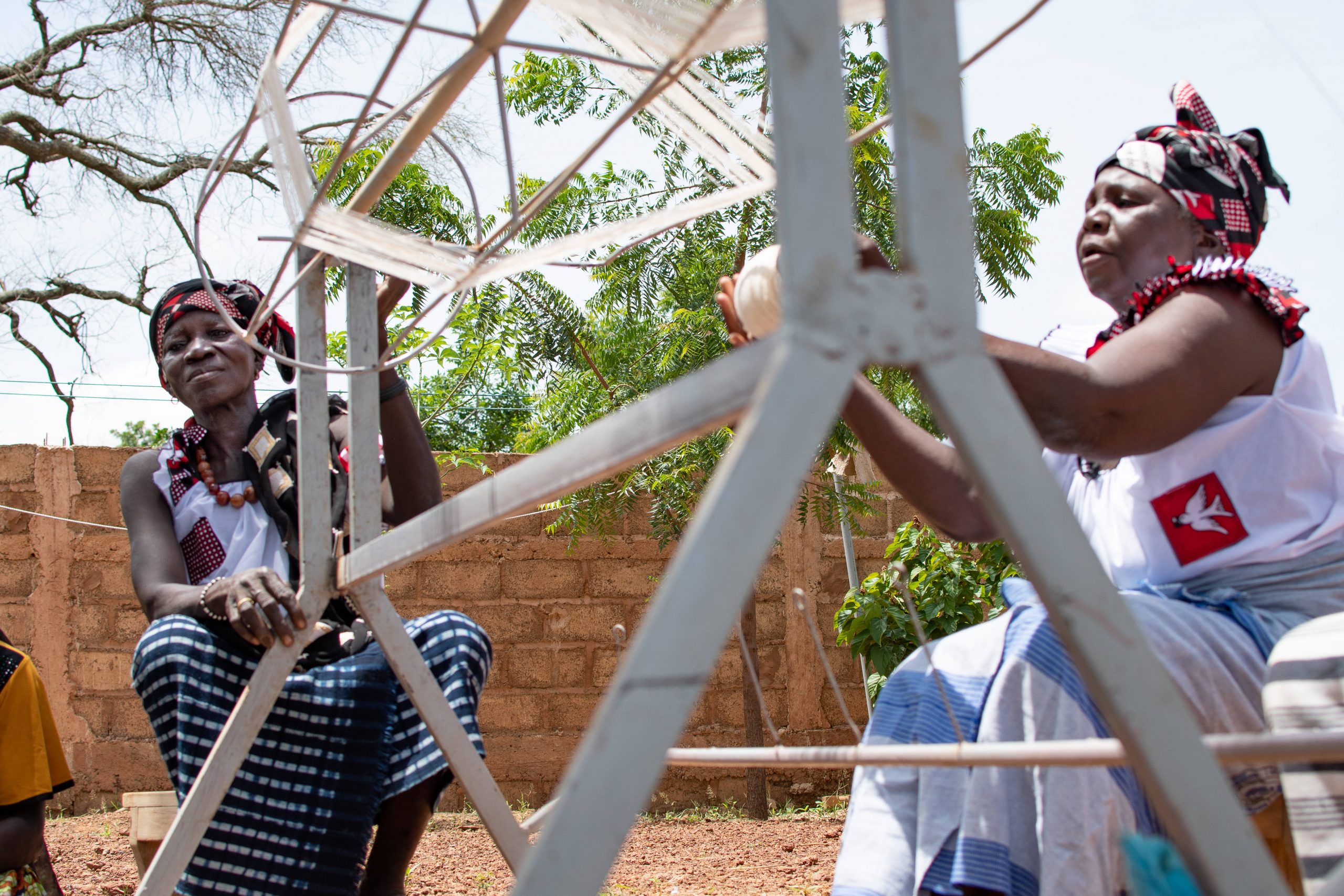
ARTISANS AND THE FASHION INDUSTRY
Artisans play an important role in the fashion industry, especially for luxury brands. Once luxury was industrialized, the importance of artisanal work declined due to efforts to increase profitability, but now artisans are becoming important again. “We have discovered the world we have created is unsustainable and sustainability comes also from treating people decently, from working well with people, and from centering the work on people. So luxury is again rediscovered in the artisans,” says Simone.
Simone says many artisans face problems because of the business model of the fashion industry. The industry is largely focused on maximizing profitability by conquesting costs. Brands and retailers have big gross margins because the cost of products has been compressed by standarization, by rationalization, and by the delocalization of production toward countries with low level costs. The business model of the industry also makes room for the exploitation of people, undignified working conditions, unfair working conditions, and unjust working conditions.
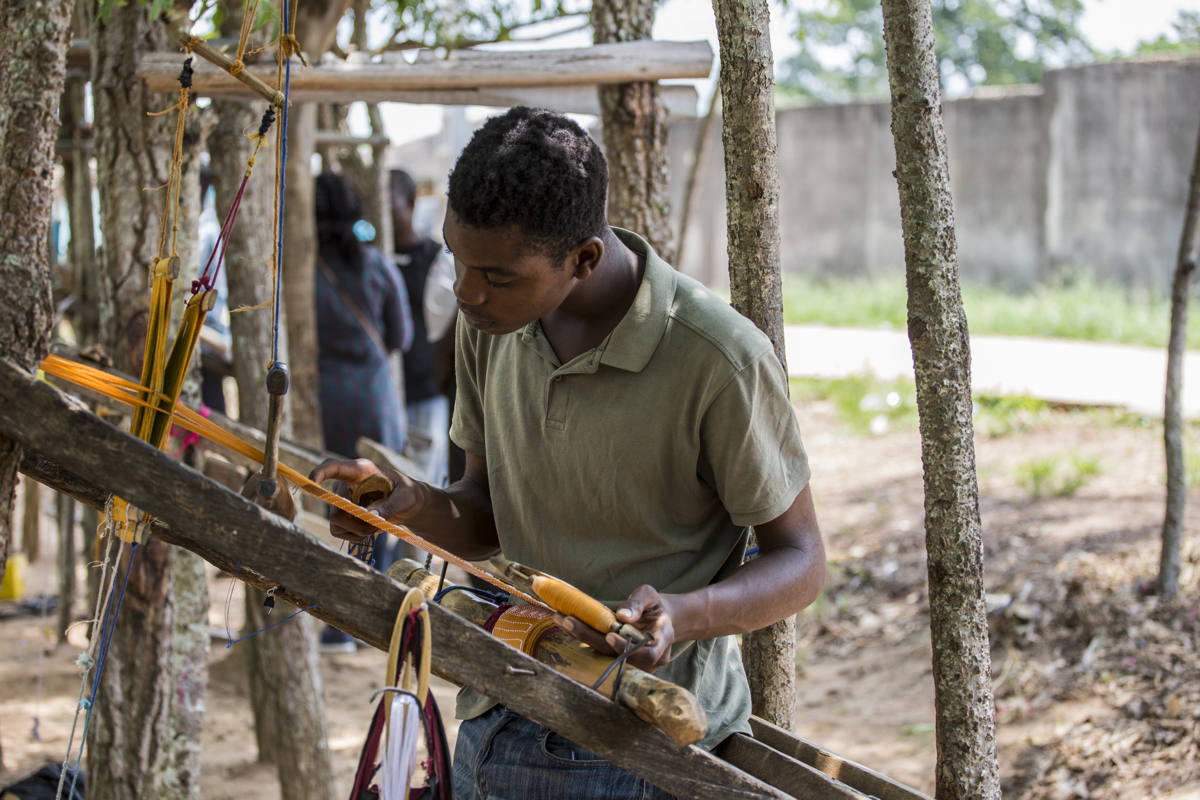
There is currently a lot of discussion surrounding the sustainability of leather alternatives. Some, can surprisingly be damaging the environment and others are not actually very long lasting. If you look into some ‘organic’ materials, Maria tells us, you can find they are made up of over 70% PU, which is really difficult to recycle and comes from petroleum.
“In many cases we know this industry has created supply chains with several tiers of suppliers, and the first tier of suppliers behave according to the corporate social responsibility standard of the brands of the retailers…and then we pass the first tier and production then trickles down to the second, third, and fourth tiers and it’s not followed by corporate social responsibility standards. They become ignored…and that’s where exploitation comes.” – Cipriani says.
Simone says the work of artisans is still there, but the business model of the industry has made it poor work. We need consumers to want to know more about transparency and about the real story behind products. We also need programs like The Ethical Fashion Initiative that will bring that transparency to the fashion industry.
ARTISANS AND CORONAVIRUS
It’s no secret that global supply chains have been disrupted by the Coronavirus. The fashion industry often puts suppliers very far from companies, and in this type of disruption, the people damaged are the suppliers. Their work becomes cancelled or they’re badly paid, and this trickles down to affect artisans.
“Coronavirus will offer a big push for sustainability, for long lasting products, for a different world…but this is a situation that may result in a stronger push toward artisans and sustainability. Artisans are linked to sustainability. If it’s sustainable there’s more room for artisans and the better of the working conditions for artisans.”
Simone thinks one element of change will come from the reorientation of global supply chains. Coronavirus has taught us that supply chains have become too big and too global. His hope is that some form of a regional supply chain will come back that’s closer to consumers. This would disclose opportunities for smaller brands to bring together skilled artisans and creative and small design, and this is something consumers will pay attention to.
The Ethical Fashion Initiative has been able to limit the damage to their supply chain so far. They work with over 5,000 artisans in Africa. Their artisans in Burkina Faso have produced 270,000 masks in response to the Coronavirus pandemic, and their artisans in Afghanistan have produced an additional 60,000. Those who work with the Ethical Fashion Initiative have work every season.
“Artisans are resourceful, they are incredible; when you work with them you realize you can do everything.”
Looking forward, The Ethical Fashion Initiative hopes to launch their own brand. A consumer brand that will speak directly to consumers and involve them in a dialogue around quality craftsmanship. For Simone, his work is one of the best things about his life.
“For me this is the opportunity to do the most beautiful job I could have ever dreamt about. It’s a wonderful job that allows me to see results. It allows me to see meaning in my life, in what I do, in people. It allows me to see how people are resourceful even in the poorest communities, in the communities where they have less means…but this gives you hope and I admire the artisans who are able to work in terrible conditions but who plan for the future, and for their families, and for society …I admire them and I consider myself lucky because I am surrounded by wonderful people…I am someone who benefits a lot out of the greatness of the people of these artisans.” – Simone Cipriani says
“Artisans are resourceful, they are incredible; when you work with them you realize you can do everything.”
